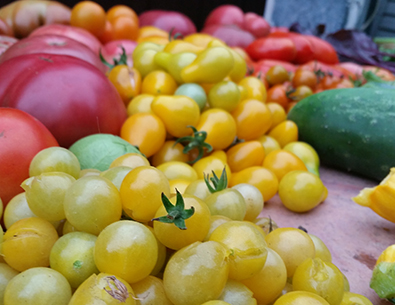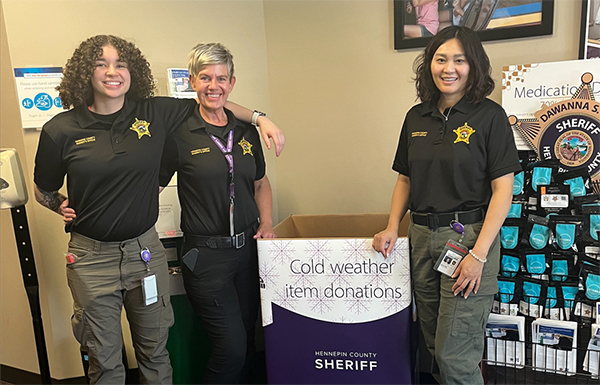You may not consider gardening as a low-waste strategy, but it is something nearly everyone can do. Growing your own food helps you reduce the miles your food has traveled, avoid associated packaging like containers or bags, and it may even reduce food waste. Surplus food can be passed along to friends, neighbors or a local food shelf and gardening is great family-time activity to pass along lessons in sustainability.
Reducing food waste
Growing some of your own food can help save money and reduce wasted food. Consider raspberries, which you can usually only find in a small plastic container at a premium price. Raspberries produce berries in abundance without much upkeep. Rather than having a tiny container of raspberries get lost in the back of your fridge and spoil, you can wait until they are completely ripe on the plant, then pick them into a bowl and eat them right away. You may even get enough to share with friends, freeze, or make into jam. Another benefit of growing your own food, beyond just berries, is that by participating in the process, kids and adults are often more willing to eat new foods and understand the resources and time that went into growing them. This may result in avoided dinnertime battles or fewer vegetables left on plates.
Easy starter garden: herbs
Every little bit of food waste avoided makes a difference. Herbs are great for beginners and have a lot of benefits - they grow well in pots and small spaces, you often need only a bit at a time, and herbs bought in stores often come with a very high packaging to product ratio.
Many herbs such as basil, chives, oregano, parsley, thyme, dill, cilantro and sage grow well from seed, and you can find these and others sold as small plants. All you need is a small patch of dirt or a container of potting soil. It's easy to find secondhand pots and planters for cheap or for free- check with friends and neighbors. Reuse old plates, platters, or even old frying pans as low-waste plant trays.
Follow planting directions, make sure they get enough sun and water, and soon you will have your own money-saving, waste-reducing, source of produce. Pick something that you can use often in your cooking and harvest a bit to use immediately whenever you need it, no refrigeration needed.
What to do with your harvest
Herbs have so many different uses— eat them fresh, dry and store for later, infuse liquids to make tea or a seasoned vinegar, make them into herb salts, add them to breads and butters, or gift a small bunch of fresh herbs to brighten someone’s day. If you grow vegetables and end up with more than you can eat, share them with friends and neighbors, or contact a local food shelf to see if they can use your excess produce.
Plan your garden today
Growing your own food is a low-waste strategy that brings fresh produce to your table. By cultivating your own herbs and vegetables, you cut down on food miles, eliminate excessive packaging waste, and reduce food waste.
So, embrace the joy of gardening, savor the fruits (and herbs) of your labor, and share the abundance with friends and neighbors. Gardening truly is a small but impactful step towards a low-waste lifestyle.

